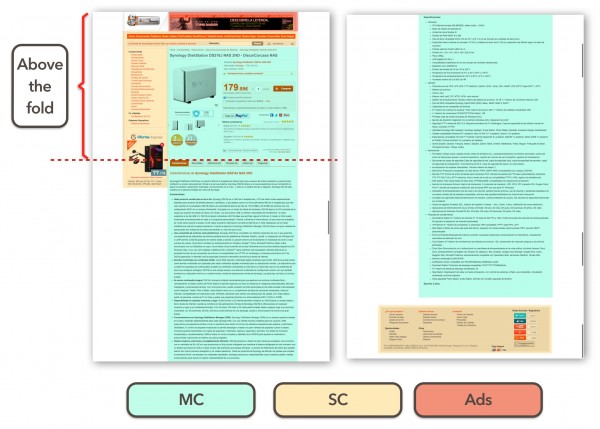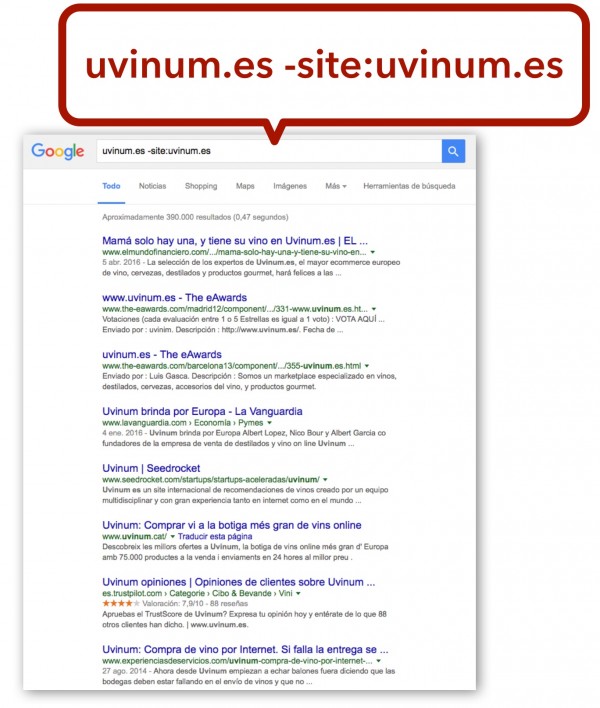Written by Fernando Maciá
Index
Content is king, but only quality content. There has been a lot of discussion over the last few years about what characteristics a content must fulfill to be valued as relevant by search engines and to achieve a good positioning. Although supported by experience and various experiments, these features are still just guesses: no one really knows how Google’s algorithm works and it is constantly evolving. So when Google’ s Search Quality Evaluator Guidelines were first published in November 2015, we were finally able to handle first-hand information about what Google means by quality content.
Although more or less unofficial versions of this guide have been circulating for years, this was the first time that Google linked to the official document and made it available to the general public. A careful study of this guide, and the changes it incorporates in successive revisions, is enormously valuable information that can help us to, at least, check whether our content adapts to the guidelines that Google sets for its own evaluators.
Your money or your life pages: quality requirements
Google first distinguishes specific categories of websites to which it applies specific quality requirements because they may have an impact on users’ happiness, health or the economy. These are Web sites with health information and advice, legal information, financial information and investment advice, electronic banking sites and online shopping sites.
What are the quality requirements that Google expects to find in this type of pages? First of all, it must be clear who or which company is responsible for the content of the Web site and each specific page. Therefore, it should be easy to find “About Us”, contact or customer service information. In this case, even organized by department and with contact names of each person in charge.
On e-commerce websites, Google recommends checking the existence of information on payment methods, the possibility of product exchanges and the policy that applies in cases of product returns. The inclusion of user opinions is evaluated as very positive. But to be taken into account as an indicator of quality, they must be sufficient in number and credible. In other words, Google expects to find both positive and some negative opinions.
Improve the information about who is behind your Web:
- It includes an “About Us” section with information about the person or company behind the Web site. If it is a company, include legal information such as company name, registration in the commercial registry, fiscal address.
- It includes a section on the means of payment accepted and the security measures adopted by the Web site to guarantee the security and privacy of user data: use of certificates, https, adherence to seals such as Confianza Online, etc.
- Be sure to inform your users how they can exchange products and the return policy applied: terms, conditions, etc.
- Add a user reviews section and articulate incentives for users to leave reviews after purchasing those items. Send inviting mailings a few days after delivery of the product. Employ gamification techniques to distinguish and reward the most active users.
- There is no need to link to these sections from the menu. Since they don’t need to rank very well either, links in the footer are enough to ensure that the search engine will crawl these contents.

Types of content: main, supplementary and advertising.
Google classifies the content of a Web page into:
- Main content: its purpose is to sell or offer information about the product. Also a product review, opinions, shipping information or transaction security information are considered primary content. Google considers the main content to be the content that helps the page achieve its goal and the main reason for the page to exist.
- Supplementary content: supplementary content is, for example, content that allows you to navigate to another part of the Web site. It can contribute to the objective of the page but it can also hinder it.
- Advertising content: any type of advertising content or content aimed at monetizing the Web site.
Improve the main content and objective of each page:
- As a general rule, the Web sites that rank best are those where the main content clearly predominates over supplementary or advertising content.
- Includes specifications, technical features and multiple product photographs. Write a selling and original description about it, highlighting as advantages the characteristics that respond to the user’s purchase motivations. Includes user opinions and/or reviews from authoritative sources… Links to information on shipping, payment and returns.
- Check, for each page of your Web site, that the purpose of the page is obvious, that the conversion objective is clear. A page with no clear purpose deserves the lowest quality rating, according to Google.
- Avoid, above all, including a lot of advertising in the above-the-fold.
above-the-fold
that is to say, in the first visible block of the page, since Google detects and penalizes an excess of advertising in this area.

Create a reputation and go to sleep
The third most important factor for quality content is the reputation and authority of the Web site or author behind that content. A domain or brand name mentioned on reputable sites brings authority to them. Mentions in highly reputable sites such as Wikipedia or online media websites (news, newspapers, magazines) of proven quality bring reputation and authority to the domain.
Therefore, content marketing can focus, in this type of sites, on the publication of user guides, comparisons, product analysis, application examples, etc. that contribute to generate a reputation as experts in our sector and as a reference for other Web sites. This will translate into mentions, links…
Google measures this authority by discovering mentions and links on other websites. We can check for such mentions by searching for: yourdomain.com -site:yourdomain.com in Google:

Therefore, we must ensure that a query such as the one above would uncover relevant mentions:
- Mentions in highly reputable sites such as Wikipedia.
- Mentions in online media websites (news, newspapers, magazines) of proven quality and related to our sector.
- Mentions in social networks, preferably from profiles of opinion leaders, influencers, bloggers who have authority in our field.
- Mentions in specialized user forums…
Quality content: the best basis for good positioning
In the end, the rules that determine the quality of online content are not so different from what we experience as quality in a physical store: abundant and relevant information provided in a timely mannerWe know who or what company is responsible in case of problems, what we can expect if problems occur, and what reputation or brand image the facility has built up over the years.
Although content is still king, today it is clear that not everything goes. The quality standards that we can glimpse in Google’s guidelines show us where we should concentrate our efforts. And, best of all: algorithms aside, it is clear that each of these recommendations is also aligned with the user’s interest and would ultimately imply collateral effects such as improved conversion, customer loyalty and their role as active prescribers and recommenders of the site.
Let’s get to work, I mean, to the code!
This article is included in the MKT Magazine “7 referents talk about Online Marketing” published by AulaCM. You can download the
the complete magazine in PDF here
.